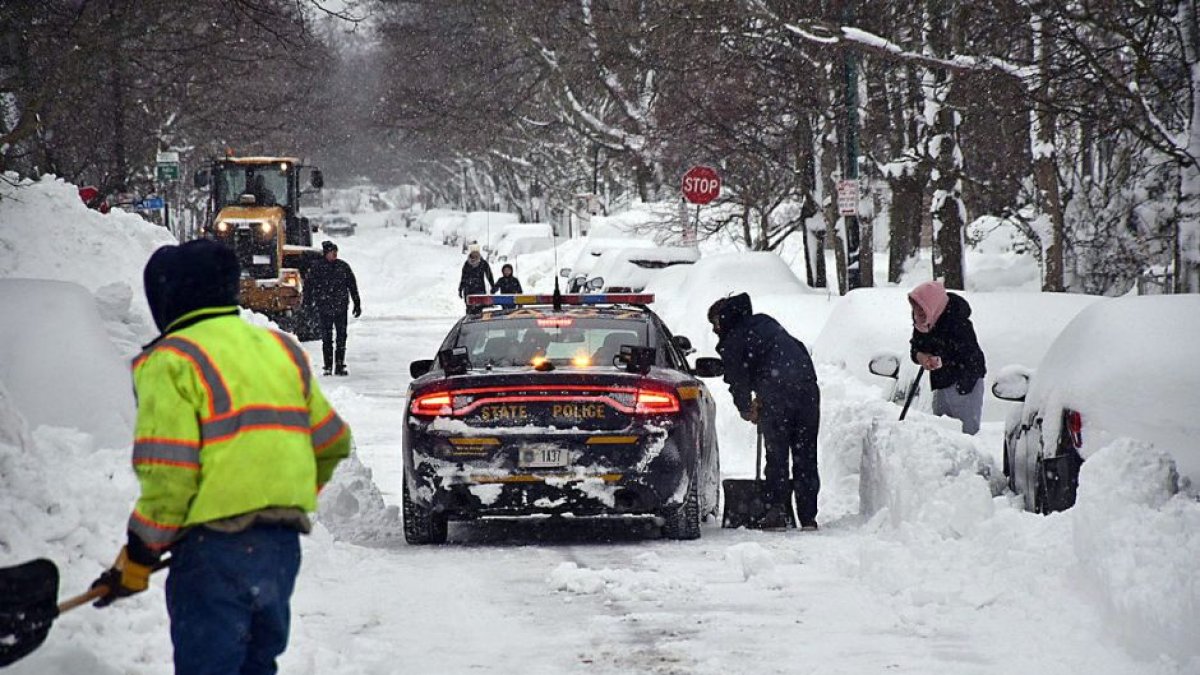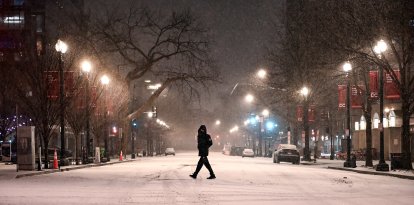'Elliott' becomes deadliest storm in 50 years in New York State
The storm surpassed the 1977 storm in terms of the number of victims. The city with the most deaths is Buffalo, with 27.

Archivo / Cordon Press.
Elliott continues to leave victims in its wake and is already the deadliest storm in the last 50 years in the state of New York, even surpassing the 1977 storm that killed 29 people.
The bombogenesis currently ravaging the nation has claimed the lives of 31 people in the state of New York alone, according to Erie County's top policymaker, Marc Poloncarz.
Of the 31 victims, 17 died on the street from frostbite, seven because they had no heating, three were found lifeless in vehicles, three others died of heart problems and one because emergency services could not arrive in time due to the poor state of the roads.
No road travel allowed in Buffalo
"Very sadly, the coroner has confirmed another three deaths. The total is now 31," stated Poloncarz on Tuesday during a press conference during which he highlighted the joint work of the military and state police with the aim of getting citizens to respect the road prohibition in Buffalo.
In fact, the city of New York continues to restrict road traffic, although they claim that they are aware that many citizens are not complying. Nathan Marto, the city's public works commissioner told NBC News Now:
An increase in the death toll cannot be ruled out since, according to Poloncarz, clean-up efforts are still ongoing in Buffalo. In the rest of the country, according to NBC, 65 people have lost their lives as a result of winter storm Elliott.
In addition, the Erie County policymaker assured that more than 7,000 workers are working to restore power to Erie homes affected by the outages. The figure, he said, currently stands at 1,354 households, of which nearly 1,000 are in Buffalo.

























